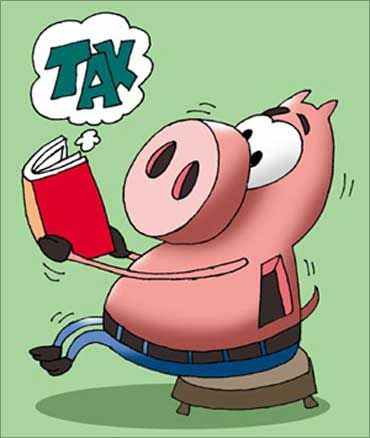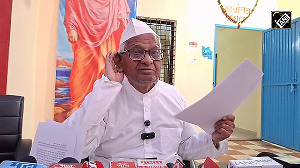The Institute of Chartered Accountants of India has shortlisted the changes it hopes to see in Budget 2017.
 Go swadeshi to enjoy benefits of long-term capital gains
Go swadeshi to enjoy benefits of long-term capital gains
In a bid to promote the “Make in India” scheme, ICAI has suggested that deductions/exemptions under sections 54, 54F, 24(b), 80EE, etc -- that help save tax on long-term capital gains -- should be made available only if the new house property is constructed/repaired out of indigenous material.
“The benefit of deduction may not be provided if the material has been imported from other countries,” said the memorandum to government.
Define ‘yoga’ to prevent misuse of tax breaks
The definition of “charitable purpose” under section 2(15) of the Income-tax Act, 1961, was amended in 2015 to include ‘yoga’ as a specific category thereunder. However, ‘yoga’ is not defined in section 2(15).
“In the absence of specific definition, the scope and ambit of what constitutes yoga would be a subject of litigation, especially in the context of claiming exemption under section 11,” the memorandum said.
Tax agricultural activities by corporate enterprises
With the expansion of agricultural business, many corporates are undertaking composite activities in agriculture.
“It is suggested that income from agricultural activities carried out by the corporates might be brought into the scope of the tax net,” said ICAI’s pre-Budget memorandum.
Amend definition of “amalgamation”
It may not be possible to meet the conditions of amalgamation where the de-merged company is a subsidiary company and the resulting company is the holding company.
Section 2(1B) of the Income-tax Act, 1961, provides for the definition of “amalgamation” which states that all the property of the amalgamating company or companies immediately before the amalgamation becomes the property of the amalgamated company.
ICAI notes that this may lead to hardship in a case where the two amalgamating companies have cross holdings.
Union Budget 2017: Complete Coverage
Do away with Place of Effective Management (PoEM) provisions
ICAI has advocated omitting the concept of PoEM from the I-T Act and defer its applicability, pending issue of final guiding principles.
“…It would be difficult to implement the final guiding principles for the FY 2016-17 considering the fact that almost six months of the relevant year has already passed by.
"Thus, there could arise an impractical situation where one would have to apply the provisions of PoEM read with the final guiding principles for a period which has already elapsed,” ICAI note said.
Defer country-by-country reporting by one year
The Finance Act, 2016 provided a specific reporting regime in respect of country by country (CbC) reporting and also the master file. However, the elements relating to CbC reporting requirement are yet to be included through amendment of the Act in various relevant sections.
“Understanding the implications of these provisions and effective implementation of the same will require a lot of efforts on the part of the taxpayers as well as the assessing officers,” ICAI said.
Launch an amnesty scheme for dispute resolution
A suitable amnesty scheme must be thought of for all central and state laws which have been merged in GST in ‘one go’ to reduce existing litigation.
Give CENVAT credit of inputs held in stock to traders
While preparing for the GST regime, ICAI has suggested a provision to allow CENVAT Credit of inputs held in stock to traders under Central excise law.
“Alternatively, deemed credit of 75 per cent value of the output duties paid on inputs be allowed to traders. This notional credit would ensure no disparity between the traders and manufacturers.”
Illustration: Uttam Ghosh/Rediff.com.











